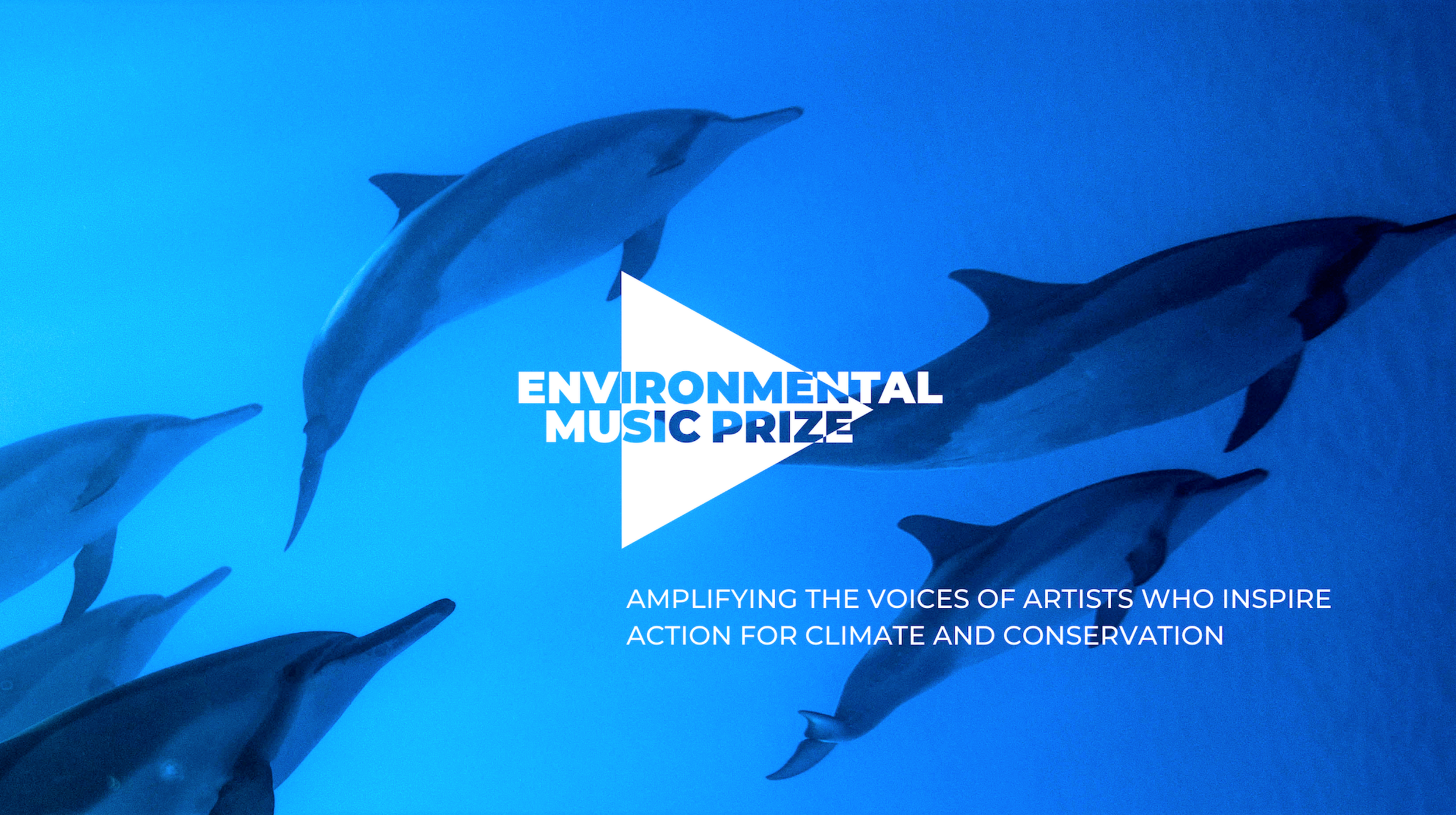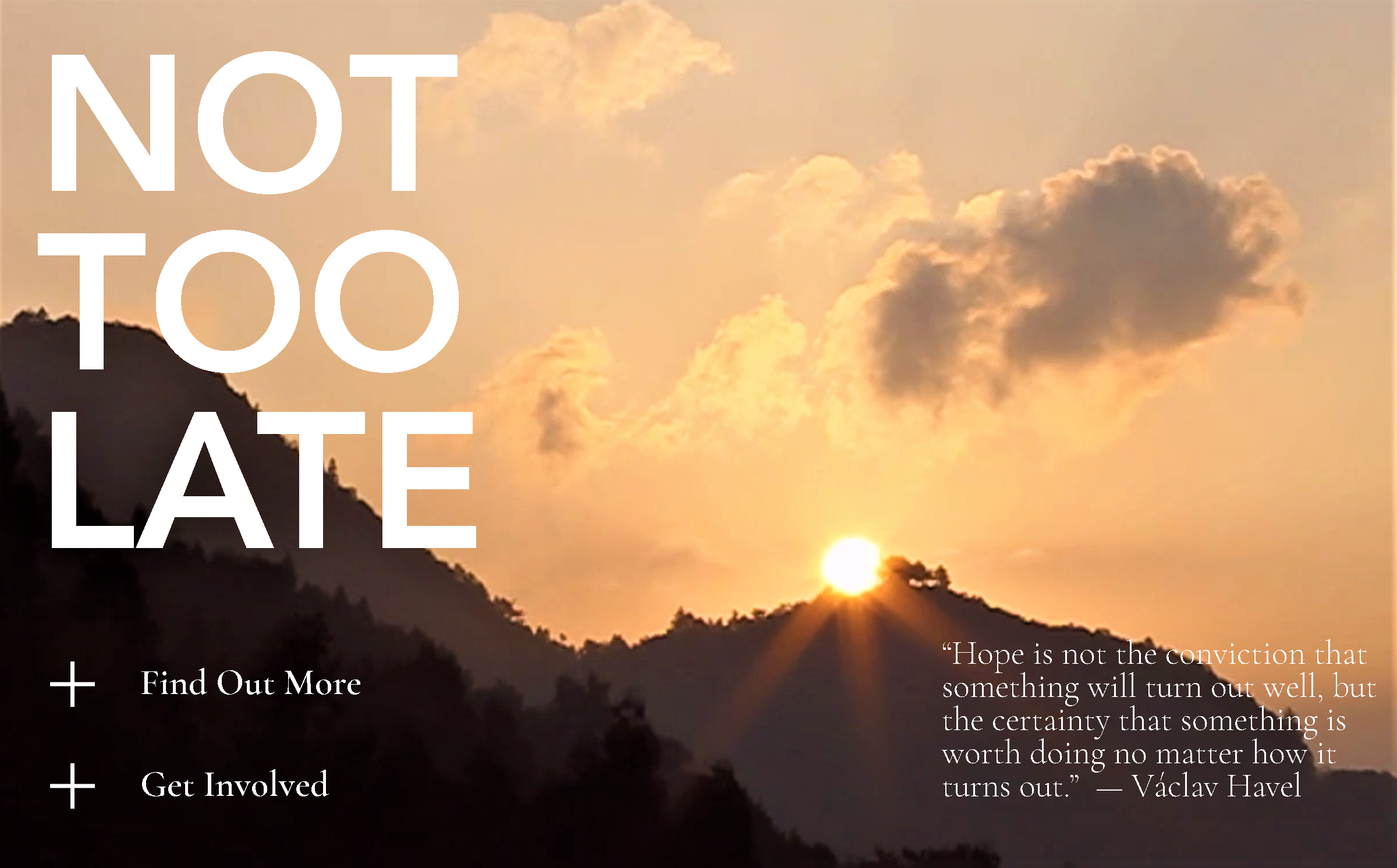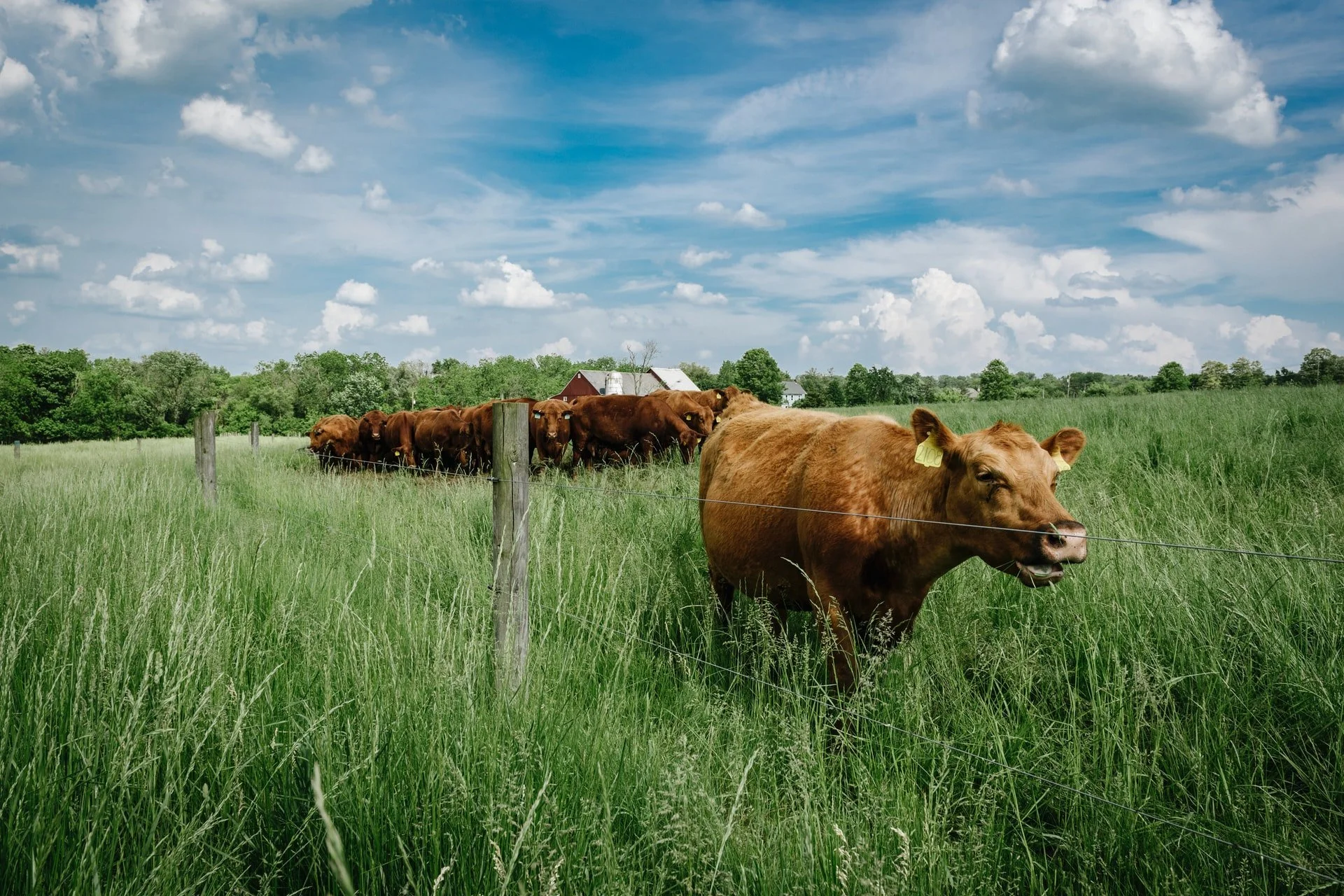Animals
A Huge Step Forward
The link between animal welfare and the environmental crisis has been formally recognized for the first time at a global level. The adoption of an historic resolution at the recent UN Environment Assembly (UNEA-5) in Nairobi, Kenya, calls on the UN Environment Programme (UNEP) to explore the link between animal welfare, the environment and sustainable development. This would help address biodiversity loss, restore ecosystems, slow down climate change, and reduce pollution and the risk of zoonotic diseases. Described as a “momentous decision” for animal welfare, the resolution recognizes that it is vital to securing a sustainable future for animals, people and the planet.
Food
Ready to End Factory Farming?
To help reduce the harm being done to the climate, the environment and animals by intensive animal agriculture, non-profit World Animal Protection (WAP) has launched a campaign to end factory farming in Canada (a similar campaign is underway in the US). It comprises a comprehensive outreach program to government and other stakeholders to halt all new factory farms by 2030. The campaign also supports those who want to help by reducing the amount of meat they eat. “Plan Meatless Better” includes customized menus, meal substitutes and recipes from celebrities. And there’s a bonus! Planet Friendly News is donating $1 to WAP for every person who decides to climb on board.
the Climate Crisis
Another Call for Action on Ag
A group of global investors with $14 trillion in assets, is urging the UN FAO to develop a plan to ensure agriculture (one of the biggest sources of climate-damaging emissions, including methane) becomes sustainable. Food production accounts for around 35% of GHGs, threatens 86% of the world's species at risk of extinction, while cattle ranching is responsible for 75% of Amazon deforestation. A recent FAIRR study showed most of the G20’s emission reduction plans have no targets for agriculture. It argues that companies and other stakeholders would benefit from knowing the volume of emissions they need to mitigate to limit warming to 1.5°C.
words of wisdom
“Meeting the challenge of the climate crisis needs to become part of a new story of human striving and renewal …Even at this late hour we still have a choice about our future, and therefore every action we take from this moment forward counts. We can, together, reimagine our place in this world.”
— Christiana Figueres, former executive secretary of the UN Framework Convention on Climate Change
Photo: Artem Beliaikin on Unsplash
deeper dive
Photo: State Archives of Florida via Wikimedia Commons
Where Have All the Protest Songs Gone?
Music has been at the forefront of social change for generations — protesting war, racism and inequality — capturing hearts and minds and inspiring action. But today there is a curious dearth of protest songs about the existential challenge of our time, the destruction of the environment and the climate crisis. Now the Australian music community is seeking to change that.
Launched during the UN COP26 Climate Summit last November, the Environmental Music Prize (EMP) is a $20,000 prize that amplifies the voices of artists who inspire action for climate and conservation.
The prize, which has attracted more than 200 entries from Australia’s leading musicians, was created by Australian Edwina Floch, when she realized there was no notable climate anthem. More on the prize in a moment.
So, why are there no recognizable environmental protest songs? Part of the answer lies in how and where we listen to music today.
The 1960s and early ‘70s were the heyday of protest music when people listened to Top 40 radio, TV shows like Soul Train and attended music festivals like Woodstock. Because people were listening to the same music, there was a common soundtrack to life. Protest songs were a shared experience, part of the zeitgeist of young people, a driver of social change, a form of political protest and a source of common anthems.
Photo: Crosby, Stills, Nash & Young (CSN&Y). Photo: CC-BY-SA 4.0 Wikimedia Commons
The soundtrack focused on the issues of the day — war, racism, and inequality. It ranged from We Shall Overcome sung by Joan Baez and Blowin’ in the Wind by Bob Dylan to CSN&Y’s (Four Dead in) Ohio. It was the anti-war I Think I’m Fixin’ to Die Rag by Country Joe and the Fish, made famous at Woodstock, and War by Edwin Starr. And the haunting sounds of Marvin Gaye’s What’s Going On. The civil rights campaigns of the 1960s embraced the gospel tradition, songs like Amazing Grace, the music of Aretha Franklin and Sam Cooke’s anthemic A Change Is Gonna Come.
Big Yellow Taxi by Joni Mitchell, Mercy, Mercy Me by Marvin Gaye, and Helen Reddy’s I am Woman, were tracks about the environment and women’s rights. The protest song catalogue was deep and wide and iconic songs became part of the change — adopted by and sung at protests, marches and demonstrations.
Artists have long used their celebrity status to raise awareness and press for action. Benefit concerts and group videos have raised money for famine relief, world hunger and AIDS — all starting with George Harrison’s Concert for Bangladesh in 1971, for victims of the war between Pakistan and Bangladesh.
Today, that common soundtrack is missing because of how we listen to music. With streaming, self-curated playlists, and social media, music has become an individualized experience — customized and splintered — with little common ground and few shared theme songs.
So even though there are protest songs today, their impact is fragmented and therefore diminished. Rap and hip-hop artists like Kendrick Lamar sing about racism and inequality, and there is still the more traditional approach with The Ballad of George Floyd. There are protest songs about the war in Ukraine including: Kiev Calling by Ukrainian punk band Beton (a remake of London Calling by The Clash); Hey Hey Rise Up, a new song by Pink Floyd who perform it with Ukrainian rock star-turned-soldier Andriy Khlyvnyuk; and the widespread support for Ukraine’s Eurovision Song Contest winner Stefania by Kalush Orchestra.
And while some musicians, ranging from Moby to Billie Eilish, are speaking out about climate, environmental and animal issues, there are very few protest songs on these topics.
Australia’s EMP is a global first that is designed to change that. It is a call-to-action for musicians to create powerful music videos that celebrate nature and encourage us to defend our planet. Rather than being merely another music award, the prize focuses on impact, with a goal to educate and empower artists to use their voices and influence to become climate leaders.
Australian musicians have been leading the way for some time. Back in 1987, Midnight Oil, a band with a track record of supporting progressive causes, released their prophetic song (How Can We Sleep When Our) Beds Are Burning. This year they released an entire album, Resist, about the climate crisis focused on inspiring people to take action.
The 24 EMP finalists in the competition ranged from indie pop artists Lime Cordiale to the aboriginal rock band King Stingray. And people were able to vote for their favourite. We Are The Youth, a track by Australian musician Jack River, is dedicated to the youth climate strikers who are leading the vanguard on climate action.
“This song is for the kids staying up late to organize a protest, for the billions of young people driving urgent political and social change. The actions of this generation will define the destiny of humanity and the planet for the rest of time.”
— Jack River
Another finalist, Sydney-based hip hop artist L-Fresh The Lion, says he wrote his song Mother out of his frustration and impatience with how we take this planet for granted.
“Conversations on climate change continue just as conversations, while the climate is changing — fires, floods, new norms being defined … I’m over the conversation.”
— L Fresh The Lion
“In Mother, I say … We need solutions. And we need action. You wouldn’t be just talking if you saw your mother suffering in front of your eyes. You’d do something to help her out. Our planet gives us life. And it’s suffering,” says L-Fresh The Lion.
Check out all the finalist videos here.
And the winner of the first Environmental Music Prize (announced in mid-June) was the Australian band King Gizzard & The Lizard Wizard with their climate anthem and accompanying video, If Not Now, Then When?
The band, who won more than 7,500 votes submitted from 58 countries, has donated all the money from the prize to The Wilderness Society that focuses on conservation in Australia.
"It’s fantastic and deeply important for initiatives like this one, to help build community around the fight against the climate crisis," said front man Stu Mackenzie.
In 2023, the Environmental Music Prize will be a global contest, seeking to spread the call to climate action around the world. And maybe, once again, music can play a role in mobilizing people to embrace change.
Animal Welfare
find a kinder way
Over five million animals a year are subjected to testing, research and experiments in Canada with little or no oversight. Rodents such as mice and rats are the gold standard for animal-based testing but many Canadians are shocked to learn that dogs are the number one non-rodent species used. With a 95% failure rate in finding effective treatments for human diseases, as well as chemical toxicity and safety testing conducted mostly without pain relief, it is harder than ever to justify research using animals. But there is another option championed by Dr. Charu Chandrasekera at the Canadian Centre for Alternatives to Animal Methods (CCAAM) at the University of Windsor. Using human-based bio materials, CCAAM is pioneering human-biology-based testing in Canada. It is cheaper, faster and far more ‘human-predictive’ than animal-based models says Chandrasekera and humans, not just animals, stand to gain.
Good news
Serena Aces Plant-Based Eggs
The 23-time grand slam winner is front and centre for a series of new US TV and social media ads for JUST Egg. She is joined by actor Jake Gyllenhaal — a fellow investor in the fast-growing plant-based alternative protein company.
According to research conducted by JUST Egg, consumers across the age spectrum are choosing plant-based products primarily to improve their health. So JUST Egg is highlighting that its plant-based eggs have no cholesterol and 69% less saturated fat compared with conventional eggs. In the US, the plant-based egg category grew 42% in retail dollar sales in 2021.
“We know that a lot of people are overwhelmed by doom and gloom. It’s not too late. At the same time, we are not here to avoid the worst news. We are here to fortify people to face it and try to change it.”
— Not Too Late
OK Doomer, It’s Not Too Late
Not Too Late aims to inform and inspire anyone seeking to change the current trajectory of the climate crisis. Created by authors and environmentalists Rebecca Solnit and Thelma Young Lutunatabua, it’s designed to overcome climate anxiety and feelings of doom and gloom by addressing the emotional and informational needs of those engaged.
“Our goal is to offer good news, perspectives, voices, connections to people, as well as good paths forward for the climate and those who care about it.
“We know that there are still important choices to make about climate, and we don't have to wait hoping for national politicians to act. We know individual actions matter, but in order to have effective change it will take mass action from people everywhere. We know the difference between the best and worst case scenarios matters. We know that the future is being decided in the present.”
data points
Photo: Chris Boese on Unsplash
One-third of CO2 emissions come from food systems
A Nature Food study shows food systems account for more than one-third of man-made carbon emissions. Animal-based foods — meat, poultry, and dairy products, as well as crops to feed livestock and the pastures they use for grazing — make up 57% of food-related emissions. Plant-based foods account for 35%.
Food waste is a significant CO2 emitter
If food waste was a country, it would be the third largest CO2 emitting nation, after China and the US, says the UN FAO. In low-income countries, food waste is usually unintentional e.g., resulting from a lack of refrigeration. In high-income countries, it’s often caused by consumers and retailers over-buying, over-serving, or rejecting food. Food waste accounts for about eight percent of global emissions.
We need to look at agriculture’s huge water footprint
The World Bank says 70% of freshwater is used for agriculture yet climate change is already limiting people’s access to water as droughts, floods, and wildfires linked to global warming impact supply. By 2030, almost half the global population will experience “severe water stress”, according to the UN. The US announced recently that it will treat water as a national security issue.
Intensive farming practices are degrading our soil
Consisting partly of decaying plants, soil not only provides the majority of our food, but it stores the carbon that those plants absorbed from the atmosphere. But over half of agriculture soils have been degraded or eroded due to intensive farming practices such as overgrazing and synthetic fertilizer use which compromises soil’s ability to store carbon and makes it less resistant to droughts and floods. Regenerative farming practices, such as planting cover crops and composting, are vital to restoring its health.
charting our path
From Exploiters to Stewards: Our Way Forward For the Planet
A new documentary from BAFTA-award-winning director Alex Lockwood (73 Cows) and writer/producer Keegan Kuhn (Cowspiracy, What the Health), explores the link between animal farming and human disease and highlights the twin threats of future pandemics and antibiotic resistance.
Dr. Aysha Akhtar, co-founder and CEO of the Center for Contemporary Sciences, served as the film’s scientific advisor, and says that diseases emerge when animals are crowded together in stressful conditions which weakens their immune systems and fosters the spread of viruses and bacteria.
Akhtar, who previously worked in pandemic preparedness in the U.S. Food and Drug Administration’s Office of Counterterrorism and Emerging Threats, says that the most lethal viruses affecting humans have historically come from animal agriculture and other exploitative uses of animals.
The film also explores the threat of antimicrobial resistance being driven by the massive overuse of antibiotics in animal agriculture to suppress diseases arising from the conditions in factory farms. This may herald the end of medicine as we know it as more and more drug-resistant diseases claim human lives – 700,000 a year today and estimated at 10 million a year by 2050.
“Our insatiable need for cheap meat and animal protein,” is taking us down a path of no return says Andrew Cunningham, professor of Wildlife Epidemiology and Deputy Director of Science at the Zoological Society of London, who is also featured in the film.
“The End of Medicine” is currently streaming on multiple platforms.
riveting reads
1. A balanced perspective on the pros and cons of the possible solutions to our broken food system (Food Tank). Getting Real About Fake Meat
2. Sorting out the health and environmental claims of alternative proteins (Greenbiz). Alternative protein critiques explained
3. Why we need to have an open mind regarding animal intelligence (The Guardian). Why intelligence isn’t just for humans
4. There are many ways to encourage people to eat more plants for the good of the planet (The Guardian). Climate-friendly diets can make a huge difference














